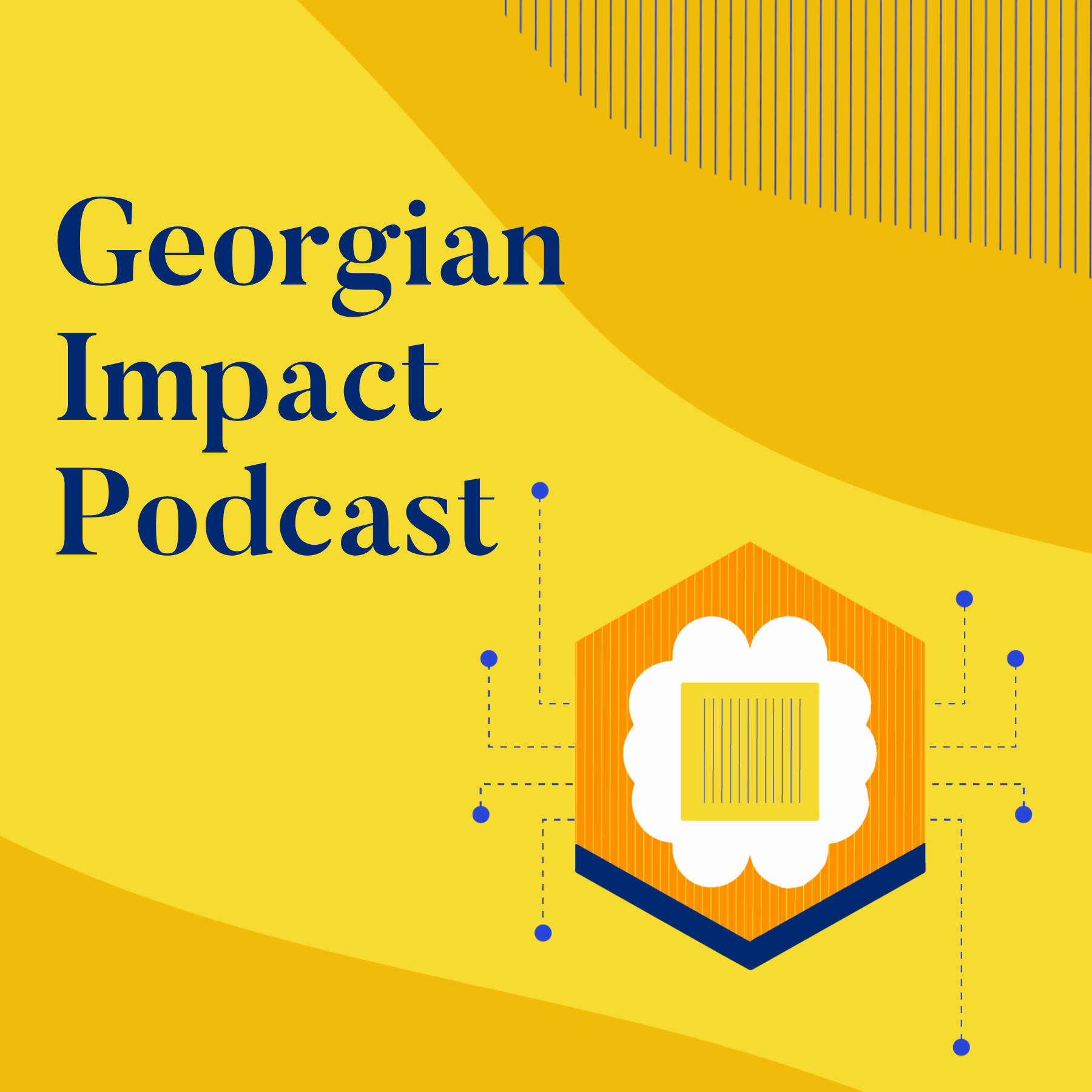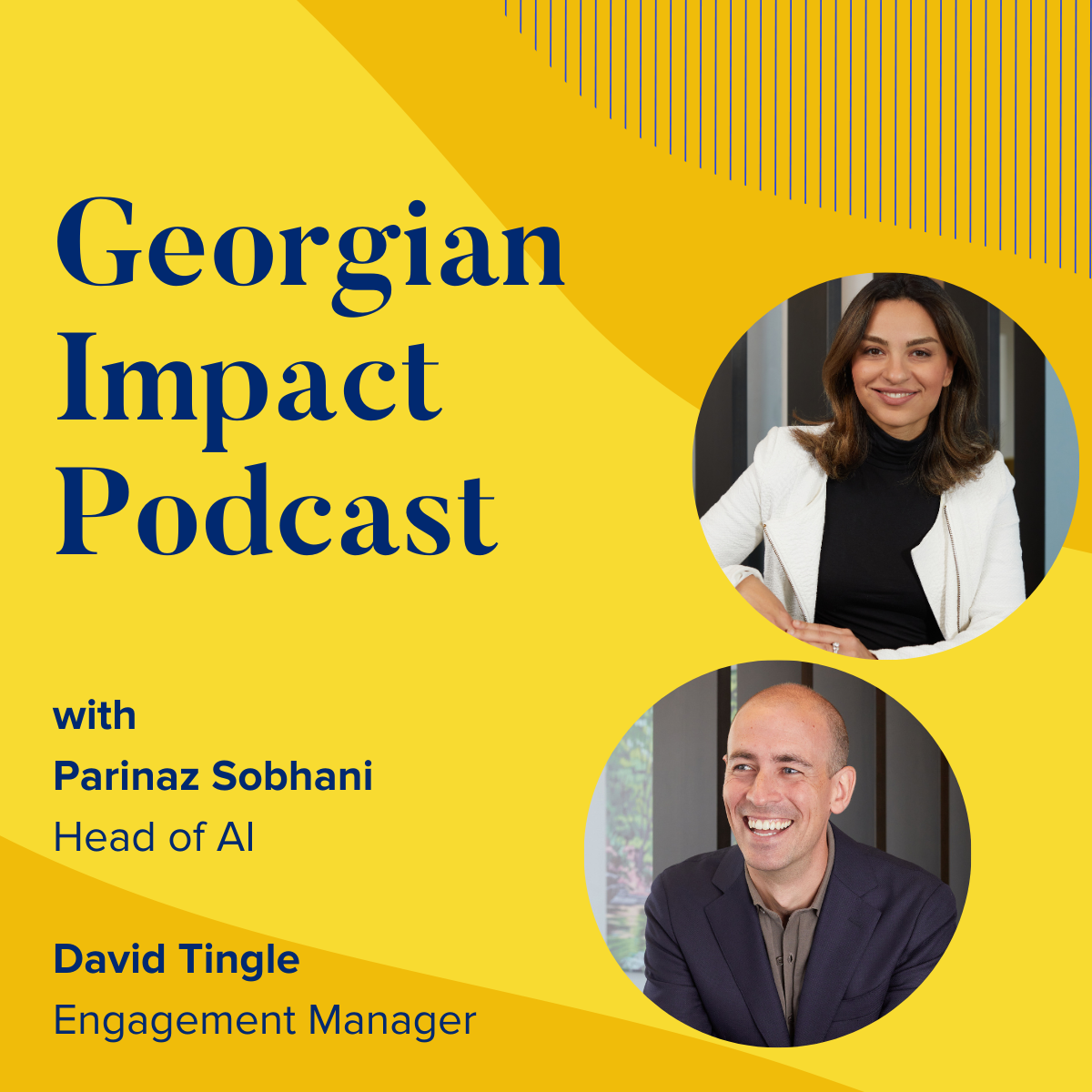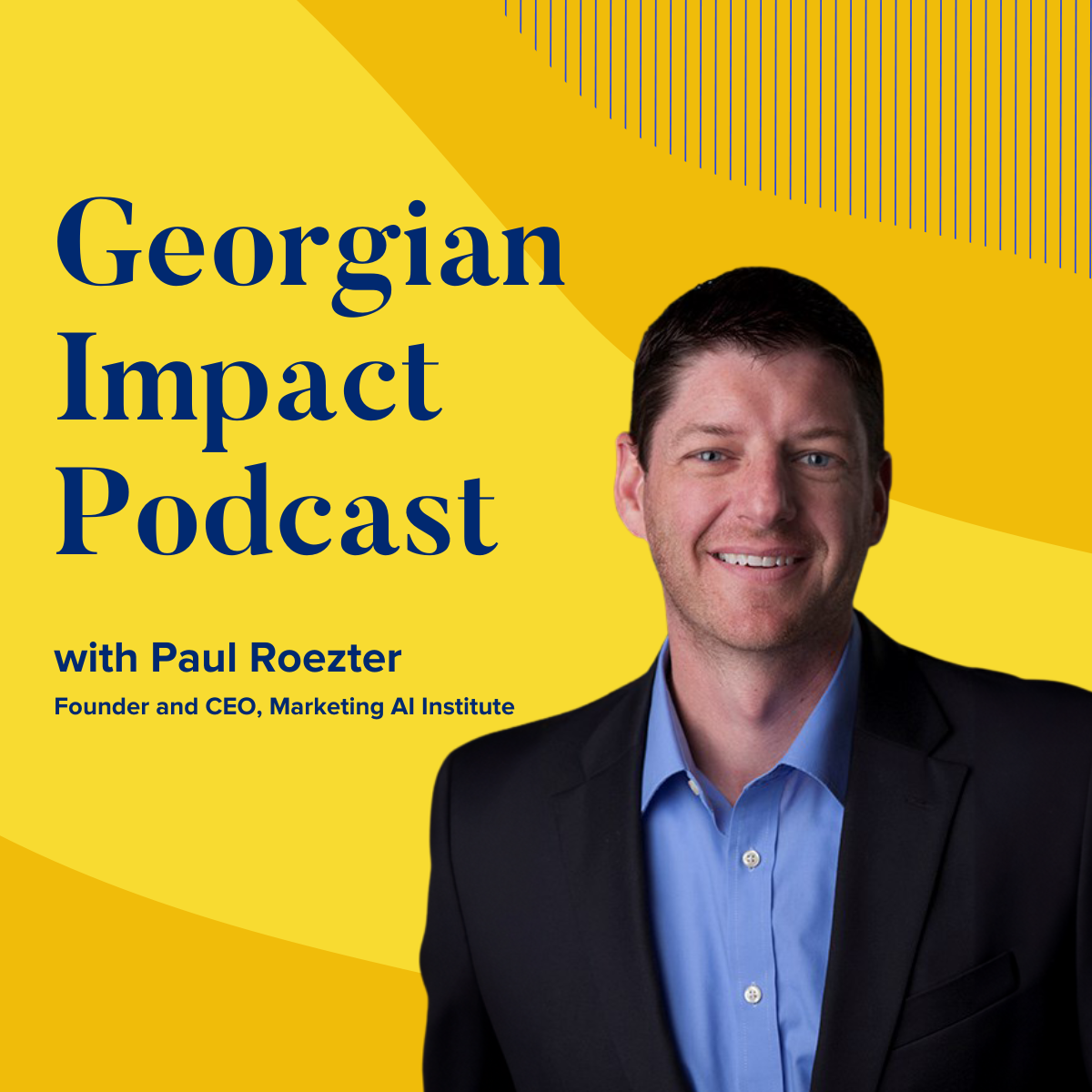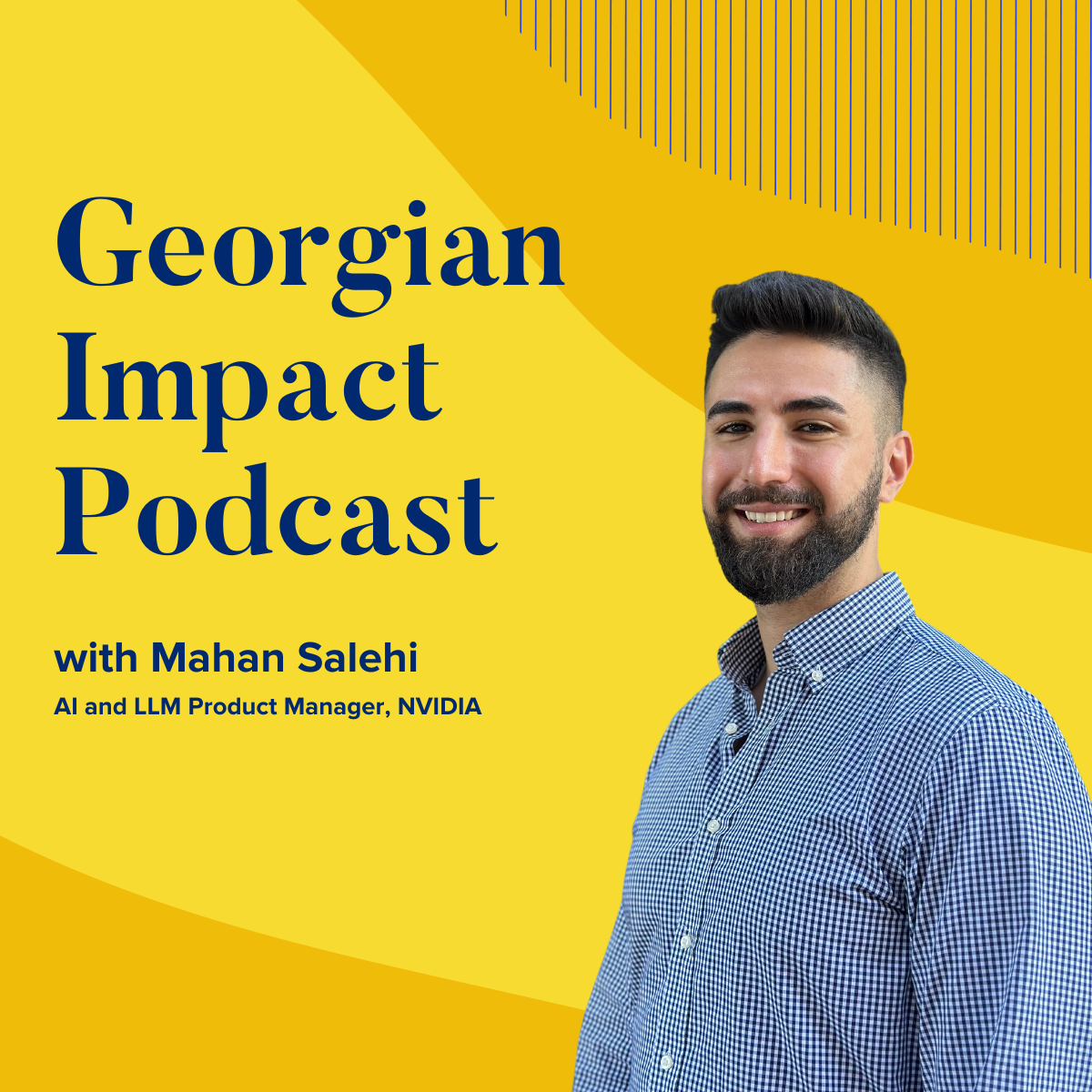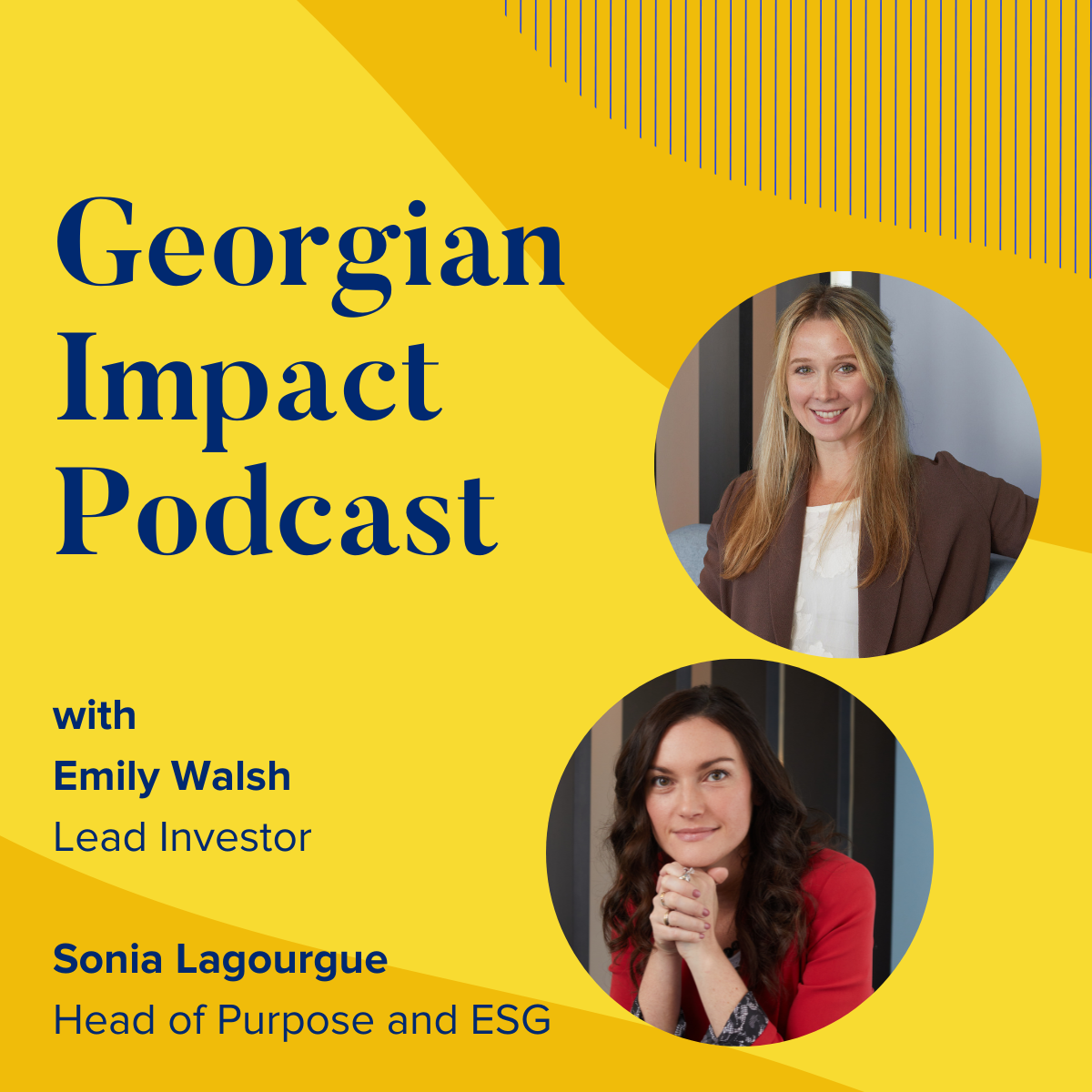Episode 3: How AI is Changing the Healthcare Industry with Brian Garcia
- 0.5
- 1
- 1.25
- 1.5
- 1.75
- 2
Welcome to the impact podcast. This is Jon preall helping people remain healthy helping people get healthier, but can they be even better results with some help from artificial intelligence and the today's podcast IBM Watson?
With me today is Brian Garcia Chief technology and product officer of well talk about will talk. And really your anchor platform Cafe. Well sure. So well talk is the company Kathy. Well as a platform behind a cafe well is to solve a fundamental problem in the healthcare space where consumers often don't know what resources available to them to improve their health and reduce their Financial Risk for healthcare that could be in the form of reduction in premiums or a contribution to an HSA or where the case maybe they often don't know what resources they have available to improve their health outcome improve their financial position and just practice Better Health behaviors. So the captain will platform allows them an Avenue to find those resources uses resource and get rewarded for doing so
And I'm asking you the question do they do do you do things with wearables in that space as well? We do so we've got a set of programs inside a cafe. Well that address a number of things with Abby chronic condition nutrition or in this particular case activity. So we've got activity programs. One of our Premier programs is called race around the world and what that is. It's a step program that inspires activity and that allows you to integrate things like a Fitbit a jaw bone of pebble whatever the case may be into that race around the world where your tracking your steps throughout the day, but you're also gaining credit and incentives inside the platform and then we're also making a little bit fun to track your progress in going from Paris to Bangkok. For example, she didn't say the word but it's game of vacation a it's a little bit now. You've got something new. It's the concierge service to write. This is a linkage to IBM Watson week. We've got to understand more about this with much details fit about it, and I definitely
Has been in research and development for some time. Now. We're actually a commercially available already behind concierge plus how do we bring the resources the challenges and the incentives that I that I just mentioned all the way down to where the consumer's right now and how do we help them interact with the health information is available to them in a much more natural way even has been previously thought. So what concierge does is we training on how to understand health care how to under skin understand benefits Understanding Nutrition understanding. And we apply that to where you might be. So geographic information what time it might be so temporal data and we we combine all those things together using SMS specs of Watson and some technology that that well talk is built to provide very contextually specific answers about health care questions to our consumers that use the concierge product.
Set an acquisition of a company preda lytx. How do they fit into this puzzle? We did. So the easiest way to that I often described by the lyrics and Watson is Watson knows a lot about subjects. So Watson knows a lot about health care that would training it on wasn't Knows Alot About nutrition knows a lot about other topics as well Springs to us knows a lot about individuals. So they know a lot about consumers. They know a lot about me and the Really fascinating part of where we're headed with. This is if we combine the power of subject matter expertise with a power of personal understanding that we can really be even more contextual a specific about how we apply information to the user when they need it when is most relevant and when it can be most powerful to them at that particular time, we often talked about companies building these unassailable data set. So you've got your data center Pedal lyrics about people you need external third-party data in this particular case Watson brought that to you. So as you
These pieces together. What were some of the insights as you gathered from from working on his project around a I started was a very Atomic question-and-answer. So ask a question get an answer that was kind of the end of the transaction that in and of itself the path to get there was not necessarily a short one, but an extremely insightful one so it allowed us to learn so much along the way to solving how do you give a very clear and accurate answer in health care to an individual now we're headed with that is the question answer was never actually the goal is we started to understand it was the actual interaction. That was much more powerful. How does a consumer in a row with Healthcare data? What kinds of questions do they ask? When do they ask this question? How do they start training questions together? Maybe it's not the questions. Maybe it's the conversation.
The powerful we didn't within Healthcare that we should be supporting and promoting and that's a better way of interacting and this conversation is what we're doing now in the next big release a concierge. That's what keeping track of that conversation over time. So what questions did you ask me last week and what questions do you ask me this week? And what's a differential between those questions? You keep asking me about that back pain. Maybe I'm not giving you that the answers that are actually addressing the problem. Let me let me refactor my answer set and give you a different answer. Maybe I recommend you go see a primary care physician because the answers I'm providing you aren't giving you the effect that you need for the defrost to see a reduction in that type of question. Wow. Fantastic. Let's talk about your expectations of business results across cell episode. You know, it's around selling.
Is indeed so more more more things that we want consumers to be able to do. We want them to understand their benefits. We want them to be able to participate in the financial aspects of their Healthcare. So their ability to participate practice participate in their care practice healthy behaviors and a benefit from the from the rewards of those healthy behaviors is step one and that's part of our incentive rewards infrastructure corp corp rock on top of that is connecting our partners that allow an any number of programs to be offered to those consumers. So maybe you have diabetes and you have hypertension. What's your highly active as well might be an interesting mix in the less. We want to be able to aggregate the best Partners out there. That might be therapy.
Into the platform into that incentive reward system.
Now that we got that Foundation. Now this work on Sierra's comes in simple. What's the most valuable and most impactful things that can be done with that where I am or what I'm doing for who I am they sent all the information that we know about health care so I can be very laser focused on giving you the right recommendation at the right time which might be a recommendation for a new program to follow a better nutrition guide so you can eat healthier as well as an activity program so you can stay active which could reduce your risk of getting diabetes in the first place for example, and then that individual benefits have a tremendous Upstream benefits of the corporations who are your customers behavior? I'm conscious of the things that affect my health and I'm the one that is taking accountability for my own personal care and even that of my family then the natural result of that is a reduction in My overall medical cost.
I'm not going to the hospital for those acute events. I'm avoiding those acute event for the even happen. I'm not getting diabetes because I'm not eating candy bars. For example, not that there's a direct correlation for the candy Association out there, but the point remains if I'm practicing those healthy behaviors, there are studies that show reductions in medical caused by just practicing how to behave just be eating well and being active so then if a company wants to go into
The space of leveraging a I more so I don't want a healthcare. This is what kind of make this broad, broad brush question what to do to get there is sometimes receives and you've spoken about it as a black box. How do we know what what should a company be doing? What should they be both thinking about and should they be getting somebody's hands dirty on the product side or the development side? Yeah, the first step even before jumping into artificial intelligence and machine learning and however, you want to approach that path is Define the problem and Define it in technical terms and more importantly in business terms ending most importantly in your end-users terms. How are you dressing a human need how you dressing a business problem? And then figure out what technologies are most appropriate to solve that problem. You might find them machine learning in artificial intelligence isn't the right path. You might find it is clearly defined a problem figuring out the pathway.
Is much much easier that way leads you down a technical path on open source, for example, if I happen to be a big fan of Apache spark, I think it's a wonderful project but you might not have the staff to do that. So follow that path to Apache spark and find there may be a vendor out there that is is expert in machine learning libraries that are applicable to Apache spark and then partner with them and have them come in and help coach you along the way to build a team to build an infrastructure and the building operations around. How are you going to run the infrastructure again? Always always always focused on the business from your solving the most importantly portly the human needs it bigger dressing. That's great. And I just started this with both in your own organization across the company then what was their skepticism was their skepticism on the power of a I was asked if the system on IBM what is in challenges just to kind of get this thing kicked off of you?
They were certainly skepticism in certain areas skepticism as well as just a lack of understanding. There's less of it lately than there was in the past. So even I had some skepticism about Watson and my skepticism was based in ignorance. I'd never worked with it and the starting point to reduce skepticism is stop producing results talking talking or waste out of skepticism is just not going to happen. If you were actually showing practical application of a particular technology and we're doing that with watts and we're doing it with Brenda let X were doing with lots of other machine learning and AI Technologies, but we're proving that here's a business problem. Here's a human need his technical implementation and hear the initial results. Are we getting so being able to get her a very quickly around hypothesis experiment result assessment of result refine hypothesis standard scientific.
Process kind of stuff is critically important and make those time frames as short as possible. This is a trend. This is a real Trend. Don't be afraid of ml. Don't be a machine-learning. Don't be afraid of a I don't be afraid of IBM. Don't be afraid of working with other inside as a service vendors collect your data figure out what's in value to the end users and looks like we got a recipe for Success think so Brian is a pleasure. Thank you very much. Thank you.
Thank you for taking your time to be with us. This is Jon preall for the impact podcast.
DESCRIPTION
Artificial intelligence is often perceived as a black box. Most companies don't know how to approach it and some even fear it. In this episode, Jon Prial talks with Brian Garcia, Chief Technology and Product Officer at Welltok, one of the world's leading health optimization platforms. Together, they explore how Welltok is using artificial intelligence and IBM Watson to create better customer experiences with their data. They then focus in on how companies in other industries can start using these technologies to create greater value.
You'll hear about:
- Welltok and its anchor platform, CaféWell (0:39)
- The company’s partnership with IBM Watson (2:14)
- The insights Welltok has gathered from its artificial intelligence projects (4:17)
- How companies can leverage artificial intelligence effectively (8:56)
- How to combat skepticism about artificial intelligence within your organization(10:38)
